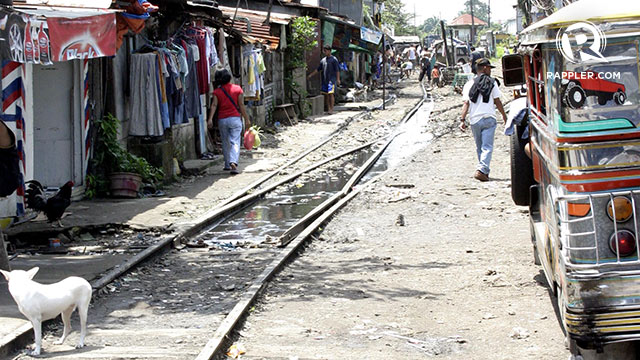SUMMARY
This is AI generated summarization, which may have errors. For context, always refer to the full article.

MANILA, Philippines – The Philippine government has overpaid by US$129 million – P5.68 billion based on current exchange rates – the Chinese contractor in the controversial train project that started under the Arroyo administration.
A special report released by the Commission on Audit (COA) last September 6 revealed that as of end of 2011, the North Luzon Railways Corporation (Northrail) has already paid contractor China National Machinery and Engineering Group (CNMEG) $210.489 million or P9.26 billion for work it reported to have accomplishmed.
The worth of the accomplished work, however, was only $81.474 million, or P3.58 billion.
And this pertains only the first section of the first phase of the project.
CNMEG has since been renamed Sinomach.
“As of December 31, 2011, Northrail has already incurred P10.569 billion without attaining its objective. There was still no railway system developed and operating after [the corporation’s] 17 years existence,” the reported said.
The P10.6 billion referred to is the total of payment made to CNMEG and the expenses inclurred by Northtail in project development and pre-operating costs.
No evaluation
Phase 1, Section 1, of the Northrail project was intended to revive the railway lines from Caloocan City in Metro Manila to Malolos, Bulacan.
The project was priced at $421.05 million under the original contract that Northrail signed with CNMEG on Dec 30, 2003.
It was to be funded by a $400-million loan from China’s Export-Import Bank. The balance was to come from the Development Bank of the Philippines (DBP).
CNMEG increased the costing to $593.88 million in 2009, with the Philippine government agreeing to shoulder the difference.
However, COA said Northrail was unable to explain how it came up with the project cost in the original contract, and what the basis was for the increase in cost 6 years later.
Too many perks
Auditors also raised questions about several provisions of the contract. In particular, the contract required the Philippine government to make 30% advance payments to the contractor.
This runs against existing regulations that set the mobilization fee at 15% of the total contract cost.
COA also found it questionable that the government assumed a number of responsibilities that are ordinarily taken on by the contractor.
These include resolving right-of-way issues, diversion of existing public utilities on the proposed railway line, and securing all necessary permits, licenses and clearances from various government offices.
In addition, the government committed to compensate the Chinese contractor in case of delay in delivering those development and pre-operations requirements.
On Aug 22, 2012, CNMEG (Sinomach) terminated the project after questions on the validity of the contract were raised and filed in court. It subsequently submitted claims for payment for work already done.
A case is pending before the Makati Regional Trial Court pertaining to a dispute on whether Sinomach is entitled to claim compensation under the doctrine of qantum meruit or restitution for work or services already delivered. – Rappler.com
Add a comment
How does this make you feel?
There are no comments yet. Add your comment to start the conversation.